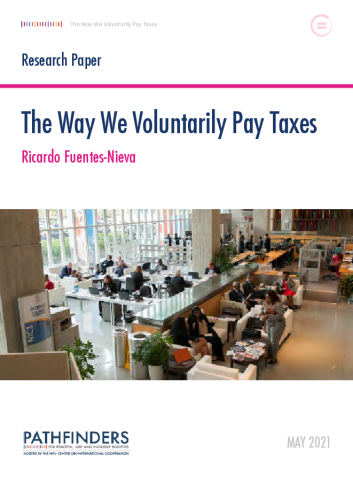
“Taxes are what you pay for a civilized society” stated US Supreme Court Justice Oliver Wendell Holmes in 1927. Time has shown that “civilized” means better lives and livelihoods for people where there is a solid tax base and collection–a necessary although insufficient condition for a society where people feel safe, heard, and participant in the decisions of the nation. A government that can efficiently collect taxes is a government with a solid administration and with legitimacy based on the fact that citizens pay their taxes by a combination of laws and a sense of duty and belonging.
Paying taxes involves legal and moral obligations. The standard economic model for tax compliance assumes a cost-benefit calculation where someone balances the cost of being caught cheating the tax systems versus the benefit keeping some money hidden to the tax authorities. Yet there are other important reasons why people pay taxes that are not captured by a purely rational calculation.
This background paper provides a framework that channels tax morale via trust and fairness directly and three elements for each one indirectly; trustworthiness of the government, reciprocity, and transparency/accountability for trust and three types of justice for fairness: distributive, procedural and retributive. This paper also makes a special distinction to the issue of corruption and how it relates to the elements within this framework.
Going from low levels of tax collection to the amounts required to unleash positive development dynamics demands careful consideration of the context of each society, their citizens’ motivations, and the relation with their authorities. This baseline information, if properly collected, will increase the chances of success, and will also help identify the key policy entry points